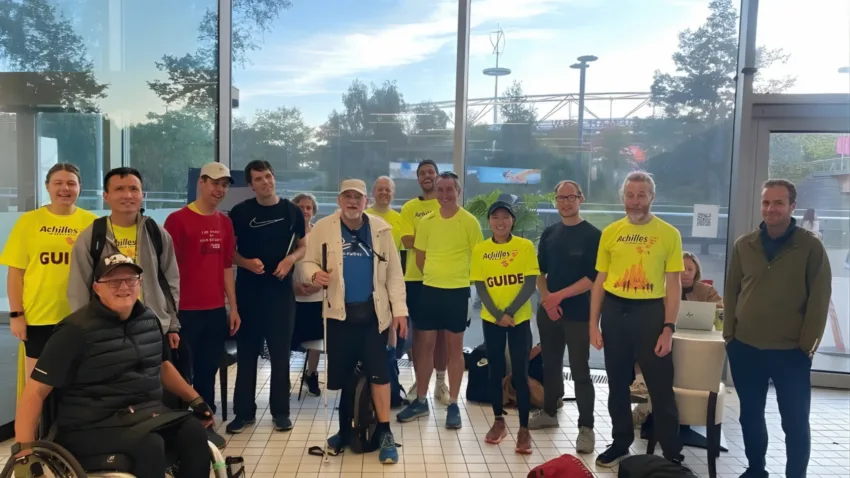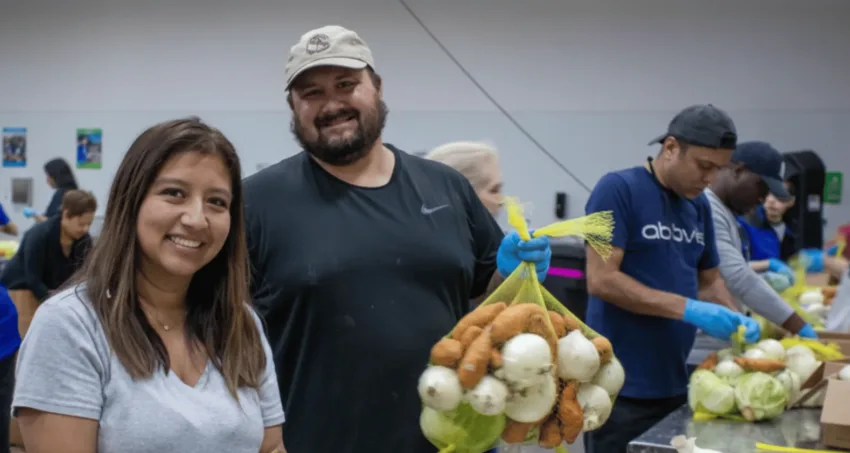
If you are looking for a way to advance your career while also having a positive impact on your community, volunteering could be the perfect solution. Volunteering is an ideal way of growing your skill set, expanding your network, and improving your resume.
In this article, we’ll explore how volunteering provides valuable opportunities for networking, skills development, exposure to different industries and work experience. We’ll share some advice on how to find volunteering opportunities that align with your career goals and personal interests and offer tips on how to make the most of your volunteering experience.
Understanding the career benefits of volunteering
Volunteering offers many opportunities for professional growth and career advancement. Let’s look at the four most significant benefits volunteering can have on career development.
Networking opportunities
Building and maintaining a strong network of professional contacts is a key tool for advancing your career. By building relationships with others, you can learn about job vacancies, connect with potential employers or clients, and even get references.
Skills development
Volunteering is an excellent way to acquire new skills and enhance existing ones. If you are looking to develop practical skills such as event management, volunteering for a nonprofit can give you the opportunity to plan and execute events. This task can help develop skills in event management, logistics, and budgeting.
Similarly, if you are interested in pursuing a career in fundraising, volunteering for a nonprofit can give you experience in donor relations, grant writing and executing fundraising campaigns.
Volunteering also provides the opportunity to develop skills in areas outside of your current job. For example, if you work in finance but have an interest in graphic design, volunteering gives you the chance to design marketing materials which helps to develop graphic design skills. This helps to build a portfolio of work and demonstrate skills to potential employers.
Volunteering can also help to develop soft skills such as communication, leadership and teamwork. By volunteering, you can practice these skills which can lead to you becoming a more effective communicator, leader and team player.
Work experience
When volunteering you gain practical work experience in a real-world setting. This experience can be particularly useful if you are just starting out in your career or looking to make a career change.
Volunteering allows you to work on projects and tasks that are similar to those you would encounter in a paid work environment. For example, if you are interested in a career in marketing, volunteering for a nonprofit can provide you with the opportunity to work on marketing campaigns, create marketing materials, and develop marketing strategies. This experience can help show that you have experience in the field.
Exposure to different industries
Volunteering can provide you with the opportunity to explore new industries and career paths. If you are considering a career change, volunteering can be an excellent way to gain experience in a new field and determine whether it is a good fit for you. As an example, if your career goals involve working in the healthcare industry, but you lack experience in the field, volunteering for a nonprofit that supports healthcare initiatives can offer valuable exposure to that industry.

How to find volunteering opportunities for career advancement
When looking for volunteering opportunities, it is important to focus on organisations and causes that align with your personal and professional interests. Researching potential volunteer organisations online and attending career fairs and networking events can help you identify opportunities that suit your needs. Additionally, reaching out to professional contacts and asking for recommendations can also be a useful tool in finding the right volunteer opportunity.
Research organisations and causes
If you’re interested in pursuing volunteering as a path to career advancement, researching organisations and causes that align with your career goals is an important first step. Start by identifying causes that are important to you and the skills you want to develop or showcase. Then begin researching specific organisations that match your criteria.
As you research, consider the type of tasks you would be doing as a volunteer. Look for opportunities that will provide you with meaningful and challenging work that will help to develop your skills and showcase your abilities. You should also consider the time commitment required for each volunteer position. Some roles may require a more significant time commitment than others, so be sure to choose an opportunity that works for your schedule and availability.
Use online resources
Social media platforms like Linkedin, Facebook and Twitter can be a valuable resource for finding volunteer opportunities. You can join groups and communities related to your industry, follow organisations that interest you, and connect with professionals in your field. Many organisations post volunteer roles on their social media accounts, so it is a good idea to stay engaged and active on these platforms to see the latest opportunities.
Job boards are another great online resource for finding volunteer opportunities. You can usually search for opportunities by location or field of work. Job boards allow you to create alerts that meet your criteria, so you can be notified about new opportunities as they become available.
Volunteer databases like Rosterfy Connect are designed to connect volunteers with nonprofit organisations in need of support. These databases provide a simple and convenient way to search and apply for volunteer roles based on location, interests, and skills.
By using these online resources, you can find volunteer opportunities that give you valuable work experience that can help advance your career.
Attend career fairs and networking events
Career fairs and networking events bring together professionals, organisations and job seekers (including volunteers) to create opportunities for organisations and potential volunteers to connect. At these events you can meet with representatives from organisations that align with your interests and career goals and learn about their volunteer programs.
When attending career fairs and networking events, it’s important to be prepared. Take copies of your resume and business cards, and be ready to talk about your skills, interests and career goals.
From time to time there are also events specifically focused on volunteering and nonprofit work. These events are designed to connect volunteers with organisations in need of support and can provide a more targeted opportunity to find suitable volunteering work. Look for events in your local area or consider attending virtual events to connect with organisations across the country or around the world.
Reach out to professional contacts
Your professional contacts may be able to recommend organisations or programs that align with your interests and career goals, or even connect you with volunteer opportunities within their organisation. When reaching out to your contacts be specific about what you’re looking for and what you hope to gain from the experience.
To start, make a list of your professional contacts, including colleagues, mentors, former bosses, and industry peers. Contact them to let them know you’re interested in finding volunteering opportunities. Once you’ve secured a volunteer role be sure to thank your contact for their help and let them know how the experience has helped advance your career.
Tips for using volunteering for career advancement
Once you’ve found a volunteer position that aligns with your career goals, it is important to make the most of the opportunity. Building relationships with mentors and colleagues, keeping a record of volunteering activities and achievements, and leveraging your experience to showcase your skills and abilities can have a lasting impact on your career.
Build relationships with mentors and colleagues
One of the best ways to build relationships with mentors and colleagues through volunteering is to be proactive and engaged in the work. Taking initiative and going above and beyond demonstrates your commitment and willingness to learn, which can impress mentors and colleagues alike. Be open to receiving feedback and constructive criticism and actively seek opportunities to learn from your more experienced colleagues. This can help you build rapport with them and establish yourself as a vital member of the team.
Keep a record of volunteering activities and achievements
Keeping a record of your volunteering activities and achievements showcases your skills, experiences and contributions to potential employers. This can help you stand out in a competitive job market and highlight your commitment to community service.
One method for keeping track of your volunteer activities is maintaining a journal or spreadsheet. Record the dates of the volunteering, the tasks performed, and any accomplishments or challenges faced. Include the contact details of the organisations you volunteered with and the names of any colleagues or mentors you worked with. You can also document feedback or recognition received to identify areas where you excelled and areas for improvement.
When keeping a record it is important to focus on measurable results and impact. Try to quantify your achievements and outcomes of your work. For example, if you helped organise a fundraising event, record how much money was raised and how many people attended. These types of details can demonstrate your effectiveness and impact as a volunteer, which can be attractive to potential employers.
Leverage volunteering to showcase skills and abilities
One of the most effective ways to leverage your volunteering experience is to highlight your accomplishments in your resume and cover letter. Many of the skills you develop through volunteering, such as leadership, communication, and problem-solving are highly valued by employers. By providing specific examples of how you have applied these skills in your volunteering role, you can demonstrate your value to potential employers and stand out from other applicants.
You can also leverage your volunteering experience to enhance your personal brand and online presence. Many organisations have a strong online presence and social media following, which provides an excellent opportunity for you to showcase your volunteering work and contributions. By sharing updates, photos and stories about your volunteering on your own social media accounts and professional profiles, you can showcase your skills and commitment to helping others.
Conclusion
Volunteering is an effective tool for career advancement. It is an opportunity for networking, skills development, work experience, and broadening exposure to different industries and companies.
By using relevant online resources, attending career fairs and networking events, and reaching out to professional contacts you can find volunteer opportunities that align with your career goals and personal interests.
To maximise the benefits of volunteering it’s important to build relationships with mentors and colleagues, keep a record of volunteering activities and achievements, and leverage your volunteering experience to showcase your skills and abilities. By following these tips and committing to your volunteer work you can make a positive impact on your community while advancing your career.
About Rosterfy
Rosterfy is used by non-profits, charities, sporting federations, and more to better manage their volunteer programs by improving how they can recruit, screen, train and retain volunteers.
Our market leading technology helps you create engaging experience throughout the whole lifecycle of your volunteer journey.
Explore additional blogs












Unlock the potential of your volunteer program
Book a short discovery call with our team to learn how Rosterfy can help you better connect with, manage, and inspire your volunteers.


